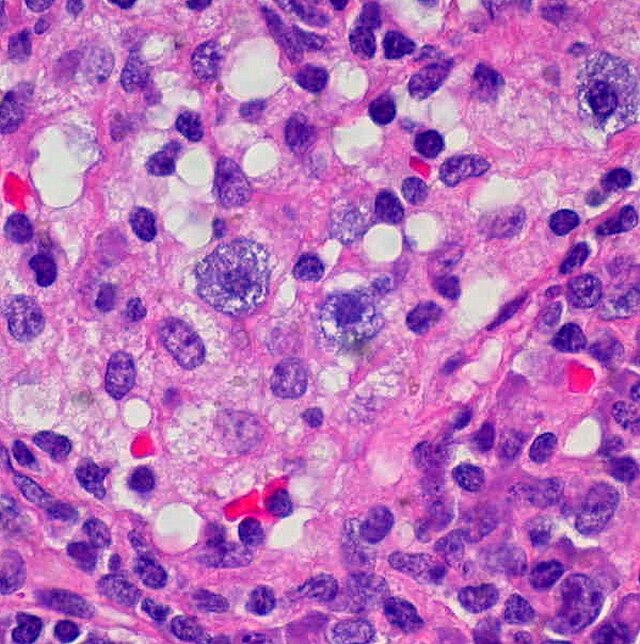What Exactly Is Mast Cell Activation Syndrome?
Mast Cell Activation Syndrome (MCAS) was officially listed as a medical diagnosis in 2016. Once considered rare, MCAS is now estimated to affect 14 to 17 percent of the general population. The number of actual cases may be underreported, as it’s often misdiagnosed or under-diagnosed.
As little as three years ago, the word “sensitive” was used to describe those who exhibited a set of symptoms not easily classified; today, we know that many people who have been called “sensitive” are actually dealing with MCAS. Several different factors can cause MCAS, including, but not limited to, genetic weaknesses that set the stage for illness, an infection such as Lyme disease, and mold exposure, to name a few.

What Are Mast Cells?
Mast cells are a type of white blood cell that play an important role in regulating the immune system. These cells are found in almost all tissues in the body, including the skin; the lining of the gut, lungs, and bladder; blood vessels; tendons; nerves; bones; ligaments – even the brain. They’re also found in the mouth, eyes, and ears. Mast cells figure significantly in allergic responses, wound healing, and maintaining the blood-brain barrier function.
When there is a perceived threat from a virus, bacteria, parasite, or an allergen, mast cells are activated to release chemicals throughout the body. The cells can release more than 200 different chemicals. Mast cell activation, called degranulation, is a process by which inflammatory molecules are released into the body in order to get rid of a pathogen or allergen. One of the most familiar of the mast cell chemicals is histamine, which causes swelling, redness, and itching when a cut becomes infected or after you get an insect bite.

MCAS
MCAS occurs when the mast cells become over-responsive. When mast cells perceive a threat to the body, they degranulate to release chemicals to protect our bodies. The chemicals released by the mast cells also call other immune cells to come to areas of the body where they’re needed.
Mast cell overreaction triggers other mast cells to keep responding and degranulating, which starts an inflammatory cascade. Some common MCAS triggers include certain foods, alcohol chemicals, infections, surgery, injuries, hormone imbalances, lack of sleep, heavy metal toxicity, stress and extreme temperatures.
MCAS Symptoms: Anaphylaxis And Other System Issues
MCAS symptoms can lead to affecting different systems in the body, including the reproductive, digestive, the skeletal systems, as well as causing brain, heart, skin issues, as well as anaphylaxis.
Many people with MCAS experience a general sense of fatigue and frequently have multiple food, drug, environmental, and chemical sensitivities. They may also have chills, sweats, and a sense of being cold all the time. Generalized inflammation and swelling are also common in MCAS.
Anaphylactic reactions occur when the mast cells have an extreme reaction. There are different grades of anaphylaxis. The lowest grade can cause difficulty breathing, itchy hives, flushing or pale skin, feeling of warmth, weak and rapid pulse, low blood pressure, GI distress with nausea and diarrhea, and lightheadedness. Extreme anaphylactic cases can cause vomiting and fainting with cardiac and respiratory arrest.
People with MCAS can experience brain fog, short term memory issues, trouble recalling words, and difficulty with attention. Headaches, migraines, and nerve pains are also common; additional symptoms include depression, loss of pleasure in life, anxiety, and insomnia. Patients with MCAS often complain of feeling faint or even fainting, and may have chest pains, fast heartbeat, and heart palpitations. Dizziness and lightheadedness when standing up and low blood pressure are also common.
Women with MCAS may have endometriosis, painful periods, infertility, and hormonal imbalances. Men with MCAS can also experience hormonal imbalances and infertility issues that are mast cell related.
MCAS can result in diarrhea, constipation, cramping, abdominal pain, nausea, and vomiting. Reflux is common, and trouble swallowing and throat tightness can occur. Mast cell issues contributing to leaky gut can lead to food sensitivities and food allergies. Due to fat metabolism and absorption issues, obesity, elevation of liver enzymes, and high cholesterol are possible.
Most people with MCAS complain of general muscular and bone pain, and a feeling of arthritis not localized to one spot. MCAS can cause hyperflexible joints, resulting in joint pain and instability, as well as osteoporosis, osteopenia, and degenerative disk issues. MCAS can result in flushing, itching, burning sensations, or hives. Other skin symptoms include easy bruising, psoriasis, eczema, rosacea, and slow healing of the skin. Some people experience hair loss, and dermatographia (redness or white marks after scratching skin) is not uncommon.
